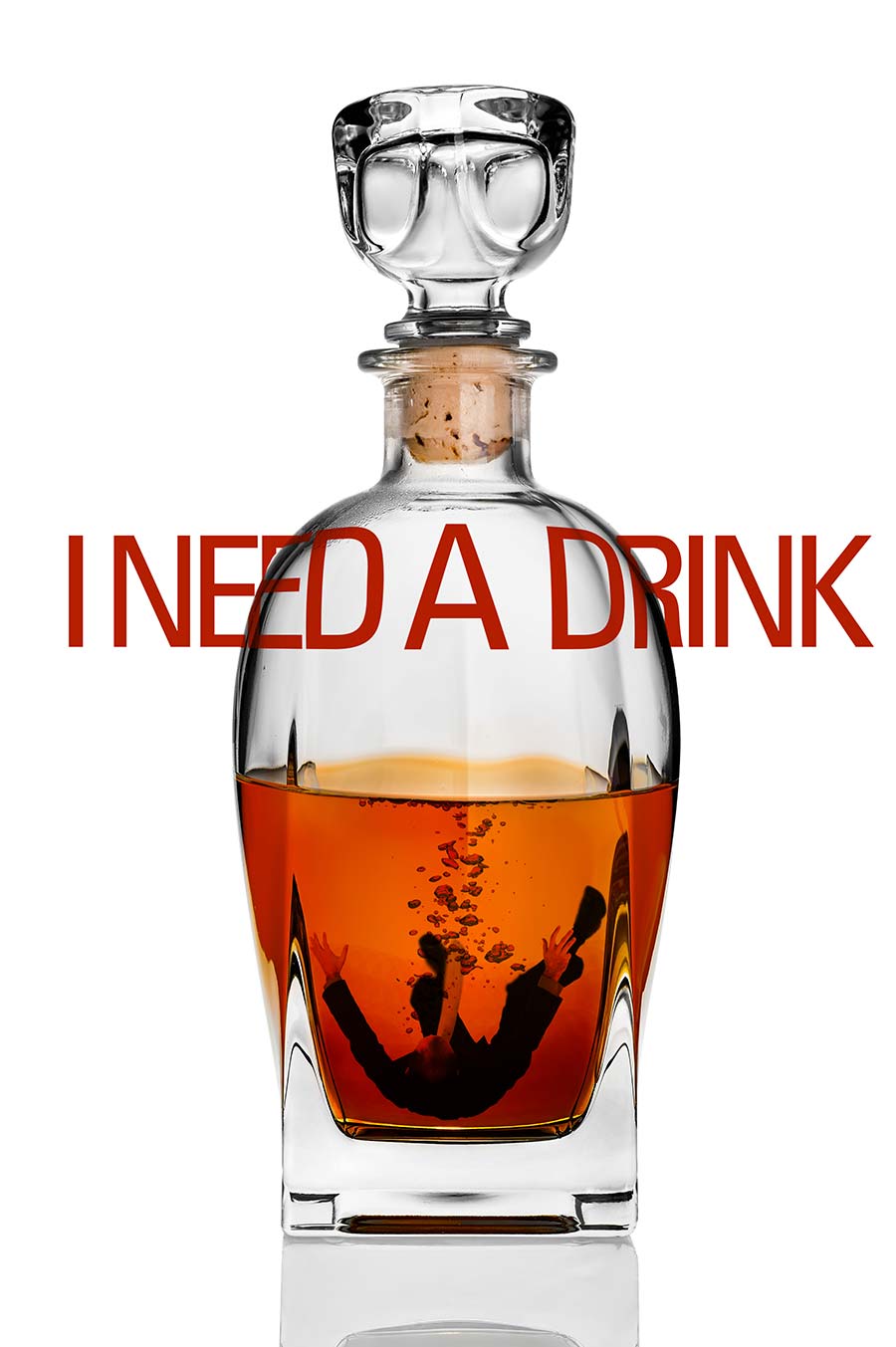I need a drink?
Alcohol is a depressant, yet many people feel a drink or two will make them better when they’ve got the blues.
You’ll often hear people say they’ve had a bad day and are looking forward to having an alcoholic drink. If that becomes a habit, you may have a problem.
People often like to “drown their sorrows” in alcohol because it does make you feel relaxed and often relieves anxiety. But according to WebMD, there is a strong link between serious alcohol use and depression, begging the question: does alcohol abuse lead to depression or do depressed people just drink too much?
WebMD estimates nearly one-third of people with major depression have a problem with alcohol. The depression may come first, but using alcohol to medicate it can lead to addiction.
Many people use alcohol as an entrée into a social group, says David Douglas, executive director of Hand in Hand Lake County, a Christ-centered ministry.
“Alcohol is legal and socially acceptable. When a person is struggling in life, they want to feel a part of something,” David says. “You find yourself social drinking to be like others. Then you find the alcohol takes away your pain or helps you forget about your struggles.”
The American Addiction Centers says the connection between alcohol and depression cannot be denied. The centers use the term “alcohol use disorder,” or AUD, which is defined as problem drinking and covers a significant spectrum of people who have issues with alcohol.
As president and director of Ruth House, Rebecca Randall has worked with women in crisis since 2000. Ruth House is a transitional shelter near downtown Umatilla.
“I think a lot of times addicts use alcohol to anesthetize mental health issues,” Rebecca says. “I find if you address the mental health issues, it gets easier to resist turning to alcohol.”
David also says alcohol use is a symptom of underlying issues like a bad childhood, ugly divorce, death of a loved one, or even guilt and shame. He also says the clinically depressed cannot be overlooked.
“These are individuals with chemical imbalances in their brain,” David says. “This can lead to alcohol misuse; however, this type of depression needs a doctor’s intervention.”
Even your primary care doctor can help you see if depression is an issue in your life. If you feel your overall sadness is more than the blues, be sure to speak with your physician about it.
“I must share this,” David adds. “I see all of these underlying issues as the evil in our lives. Even the original [Alcoholics Anonymous] supports the issue of not having God in your life. We have to have a power greater than ourselves to give our hurts and hang-ups to.”
At Hand in Hand, residents in recovery learn about G.R.I.T., which stands for God, Relationships, Integrity, and Truth.
“If we give our lives (and struggles) to God, he will help us with our relationships so we can rebuild our integrity and learn the real truth in all we do,” David says. “Because depression goes hand in hand with alcohol misuse, the underlying issues must be addressed head on.”
The National Institute of Mental Health says major depression is one of the most common mental disorders in the United States. When a person is plagued with a depressed mood or loss of interest in doing pleasurable activities, lack of sleep, eating changes, and loss of energy, concentration, and self-esteem for a period of two weeks or longer, it could be depression, the National Survey on Drug Use and Health has found.
“Then there is the other effect of depression and alcohol. Some people get a high from drinking,” David says. “It gives them energy and they feel more socially acceptable. In this case, drinking starts because of depression and the person drinking feels happy or ‘normal’ for a while.”
The next time you drink, THINK. Why are you having more than one drink? Alcohol and depression may not provide the satisfying mix you’re seeking.
Symptoms of depression
• Little interest or pleasure in doing things
• Feeling down, depressed, or hopeless
• Trouble falling or staying asleep or sleeping too much
• Feeling tired or having little energy
• Poor appetite or overeating
• Feeling bad about yourself, that you are a failure, or have let others down
• Trouble concentrating on things like reading or watching television
• Moving or speaking so slowly that others notice or being so fidgety or restless that it’s noticeable
• Thoughts that you’d be better off dead or you want to hurt yourself in some way
Source: National Alliance on Mental Illness
Symptoms of AUD
• A lot of time spent drinking
• Recurrence of drinking too much or for too long
• Continually craving alcohol
• Continuing to drink despite negative effects on relationships
• Cutting back on other activities in favor of drinking
• Continued drinking even though it results in depression

